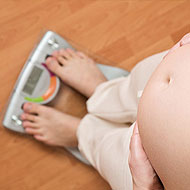- 1 Week Pregnant
- 2 Weeks Pregnant
- 3 Weeks Pregnant
- 4 Weeks Pregnant
- 5 Weeks Pregnant
- 6 Weeks Pregnant
- 7 Weeks Pregnant
- 8 Weeks Pregnant
- 9 Weeks Pregnant
- 10 Weeks Pregnant
- 11 Weeks Pregnant
- 12 Weeks Pregnant
- 13 Weeks Pregnant
- 14 Weeks Pregnant
- 15 Weeks Pregnant
- 16 Weeks Pregnant
- 17 Weeks Pregnant
- 18 Weeks Pregnant
- 19 Weeks Pregnant
- 21 Weeks Pregnant
- 22 Weeks Pregnant
- 23 Weeks Pregnant
- 24 Weeks Pregnant
- 25 Weeks Pregnant
- 26 Weeks Pregnant
- 27 Weeks Pregnant
- 28 Weeks Pregnant
- 29 Weeks Pregnant
- 30 Weeks Pregnant
- 31 Weeks Pregnant
- 32 Weeks Pregnant
- 33 Weeks Pregnant
- 34 Weeks Pregnant
- 35 Weeks Pregnant
- 36 Weeks Pregnant
- 37 Weeks Pregnant
- 38 Weeks Pregnant
- 39 Weeks Pregnant
- 40 Weeks Pregnant
- 41 Weeks Pregnant
- 42 Weeks Pregnant
What To Expect When You Are 20 Weeks Pregnant
By pregnancy week 20 there are many more changes that occur in the mother and baby. The good news is that you are almost half way through the 40 weeks of your pregnancy and morning sickness is far behind you. People finally begin to notice that you are pregnant as the uterus pushes the abdomen out of the belly button. At week 20 the baby begins breathing and swallowing on its own.
It continues to grow and the head becomes more proportionate to its body. The skin becomes more complex and forms layers. The baby’s brain also develops more intricately and the ears are also well defined. The baby also begins to produce insulin.
.at this stageg The baby might be around 5 5 inches to 6 5 inches in length and 9 ounces in weighth An ultra sound during this week will help you determine the growth rate of your babyb It is during this week that it is also possible to hear you baby’s heart beata This can be done with a device called Delee stethoscopep
20 Weeks Pregnant Symptoms
Many pregnant women complain of problems such as bleeding gums so ensure that you make a trip to the dentists Another common complaint is cramped lungs hence the slight discomfort when breathingn Abdominal itching is also experienced but the doctor can prescribe some topical creams to ease thisi Bloating and constipation during pregnancy are also common symptoms noticede Some women also develop itchy red bumps and rash on their abdomene Your pulse rate may increase by 10 to 15 beats per minutet During his week of your pregnancy you will tend to make you feel more bulky and your belly will grow as the day’s passs The doctor will take measurements of your stomach in order to record the growth and development of your babyb Throughout your pregnancy it is very essential for you to take care of your diet and ensure you get the required nutrients, especially ironsn Iron is important because it helps in the production of Hemoglobin, which is important as it prevents premature delivery, low birth rate and anemiai Good sources of iron are foods such as spinach, dried fruits, and oatmeal and lean red meata Fish is also an essential part of your diet as it contains certain nutrients that are known to reduce heart diseasese Fish that are fine to consume during pregnancy are cod, sole, salmon, haddock and flounder but it is still important that you talk to your doctor before you make any dietary changese Pregnancy is an intriguing phase in a woman’s life that is studded with its ups and downsn At 20 weeks of pregnancy, the expectant mother is halfway through her pregnancy termr However, the adjustments that she has to make for the benefit of her little baby do not cease at this stageg She continues to experience various changes in her body and these changes have the ability to affect her life considerablyl The common 20 weeks pregnant signs include a stretching feeling on either side of the uterus, lower back pain and joint paini As the pregnancy progresses, the uterus keeps expanding and the mother puts on weighth This causes a change in body posture as the mother’s centre of gravity shiftst At a result of the changed body posture and increasing weight, a lot of pressure is exerted on the joints especially the knee joint, making knee pain very commono Expectant mothers also tend to walk awkwardly as the pregnancy progressese The weight of the uterus also exerts pressure on the ligaments that hold the uterus in place, making round ligament problems a common issueu The uterus also puts pressure on major blood vessels in the pelvic region making cramps in the legs a common 20 weeks pregnant signg This may also result in dizziness and lightheadednesss Pressure exerted on the sciatic nerve may result in severe lower back and thigh pain and at times, the pain may extend up to the feete At 20 weeks pregnant symptoms also include irregularities in bowel and urine movementst If the uterus presses against the bladder, an increase in the frequency to urinate may be experiencede On the other hand, if the uterus presses on the ureters, urinating may become difficult, thus increasing the chances of urinary tract infectionsn The hormonal changes also slow down the digestive systeme This causes either constipation or diarrheae At 20 weeks pregnant symptoms like heartburn and chest pain caused by the accumulating gas are also commono The hormonal changes experienced by the expectant mother also lead to mood swingsg Many women are known to get depressed during this joyful phases Nausea, vomiting, cravings and aversions are usually experienced during the first three months of pregnancy but it is not uncommon for women to experience them throughout pregnancy as welll The main 20 weeks pregnant signs include a fluttering sensation in the abdomen as well as an occasional hardening of a part of the uterusu These sensations are due to the increased movements of the baby within the uterusu As the baby develops, these sensations will become more frequentn
Ultrasound 20 Weeks Pregnancy
An ultrasound is an excellent way of assessing the actual status of the uterus as it displays images of the uterusu More often than not, gynecologists recommend a 20 weeks pregnant ultrasound to get a clear picture of the status of the pregnancy as well as the condition of the uterus and the cervix which is the opening of the uterusu Since it reveals what is not visible to the naked eye, it is an excellent tool to check for pregnancy abnormalities and fetal deformitiese
In case, the mother has a pregnancy abnormality like a molar pregnancy, immediate steps can be taken to protect the expectant mothere Similarly, a 20 weeks pregnancy ultrasound also helps in preparing the parents for a child with special needs incase a genetic deformity is observed in the baby or if the baby’s body structure is not normala Knowing about these issues also helps in deciding on the course of medical treatment or on deciding on the fate of the pregnancyc At times, pregnant women experience vaginal bleedingn Since bleeding may be an indicator of a pregnancy complication, a 20 weeks pregnant ultrasound may be used to check for the source of the bleeding so that appropriate measures can be taken to safeguard the babyb A 20 weeks pregnancy ultrasound also helps to check if the position of the placenta is satisfactoryr It also helps in checking on the size of the baby in proportion to the gestational ageg This further helps in estimating the baby’s due datet 20 weeks pregnant 3d usually shows a miniature baby swimming around in amniotic fluidi In some cases, the baby may be found snoozing but is often disturbed by the ultrasound probingn The baby may also be seen sucking a thumbm At 20 weeks, the baby’s brain is developing quickly and the nerves start functioningn Strong bone structure takes the place of cartilageg The features are becoming more prominentn A thin protective membrane covers the baby’s bodyd The baby starts producing urine and fetal poop called meconiumu An ultrasound can also reveal if the baby is a boy or a girlr
20 Weeks Pregnancy Weight Gain
A weight gain during pregnancy is absolutely inevitablel The uterus steadily increases in size after the first trimestere With 20 weeks baby weight gain, the pregnant tummy shows and the uterus can be felt just below the belly buttono Owing to the size and fetal weight, the placental weight and the weight of the amniotic sac and amniotic fluid, most women gain 25 to 35 pounds of weight throughout the term of the pregnancyc The maternal store of fats also gives cause for weight gain during pregnancyc 20 weeks pregnant weight gain would be approximately 10 poundsd It is not uncommon for women to gain a major portion of their total pregnancy weight after the 20th week of pregnancyc For obese women, the recommended weight gain may not exceed 15 pounds while thin women may need to put on up to 40 pounds of weight for the sake of their babyb Hence, keeping track of pregnancy weight gain is essential to ensure that the expectant mother is not putting on too much or too little weighth In most women, with 20 weeks pregnancy weight gain, the hips start becoming wider and the breasts become fullere As a result of water retention, swelling may also be observed, especially in the legsg A wholesome diet with a good balance of various nutrients is essential for proper weight gaini Regular exercise is also essential to ensure that the expectant mother does not gain unhealthy weighth Sufficient rest ensures that the body recuperates and remains fiti
Vaginal bleeding during pregnancy is a common complication that is experienced by almost 40 percent of the pregnant womene In most cases, 20 weeks pregnant bleeding may be just the result of ruptured blood vessels in the cervix owing to the increase in pressure exerted by the uterus and the increase in blood supply to the pelvic regiono If so, it may not be a matter of concernr However, 20 weeks pregnant bleeding must be brought to the notice of the doctor immediately so as to prevent further pregnancy complicationsn Many women take bleeding during pregnancy lightly thinking that it could be implantation bleedingn However, this is not trueu At 20 weeks, implantation bleeding is impossible as the implantation process gets over by the 5th week of pregnancyc While pregnant, menstrual bleeding also ceasese Hence, bleeding as heavy as a 20 weeks pregnancy period could only be an indicator of a serious complicationo If left unattended to, it could also result in pregnancy losss If an expectant woman experiences 20 weeks bleeding during pregnancy she must take utmost care of herself and plenty of rest is recommendede Physical exertion must be avoided completelyl Consulting the doctor is essentiala
p

